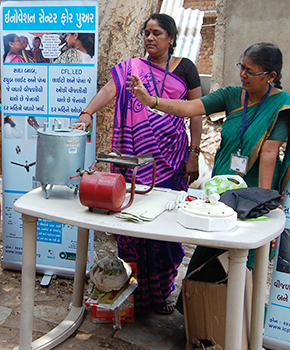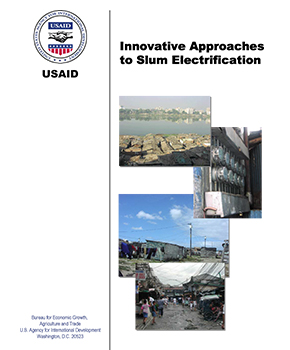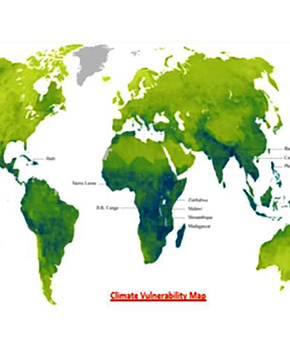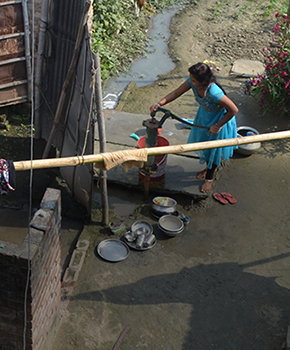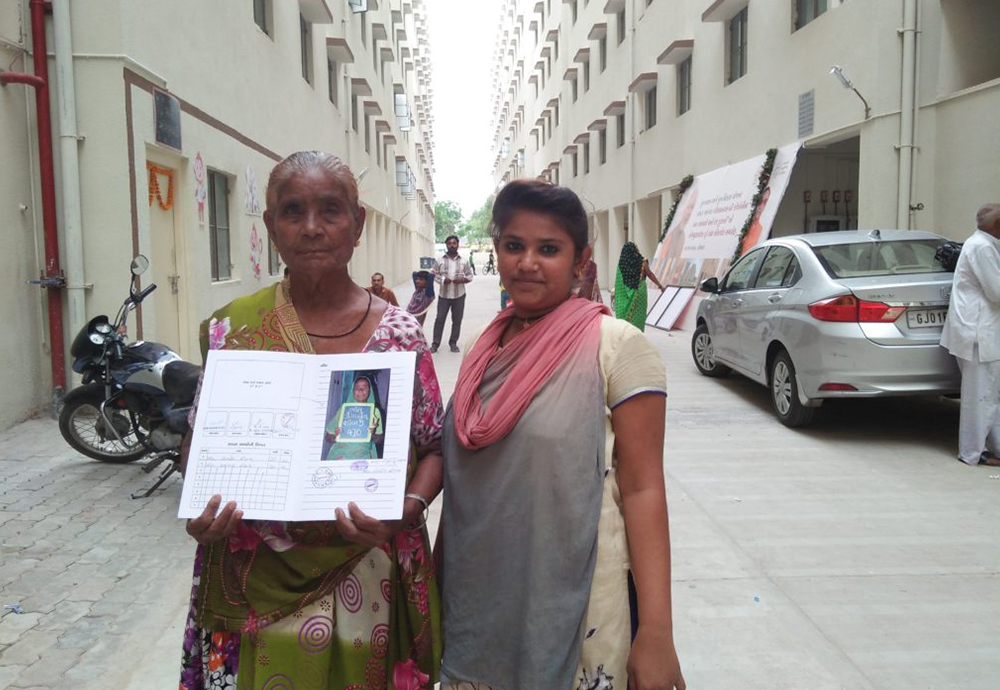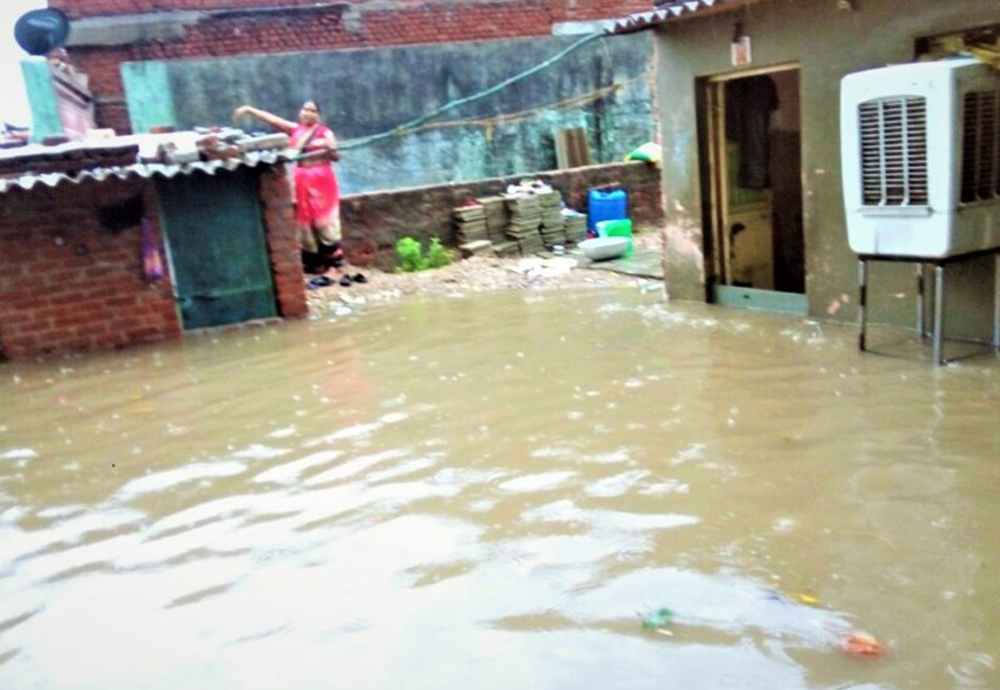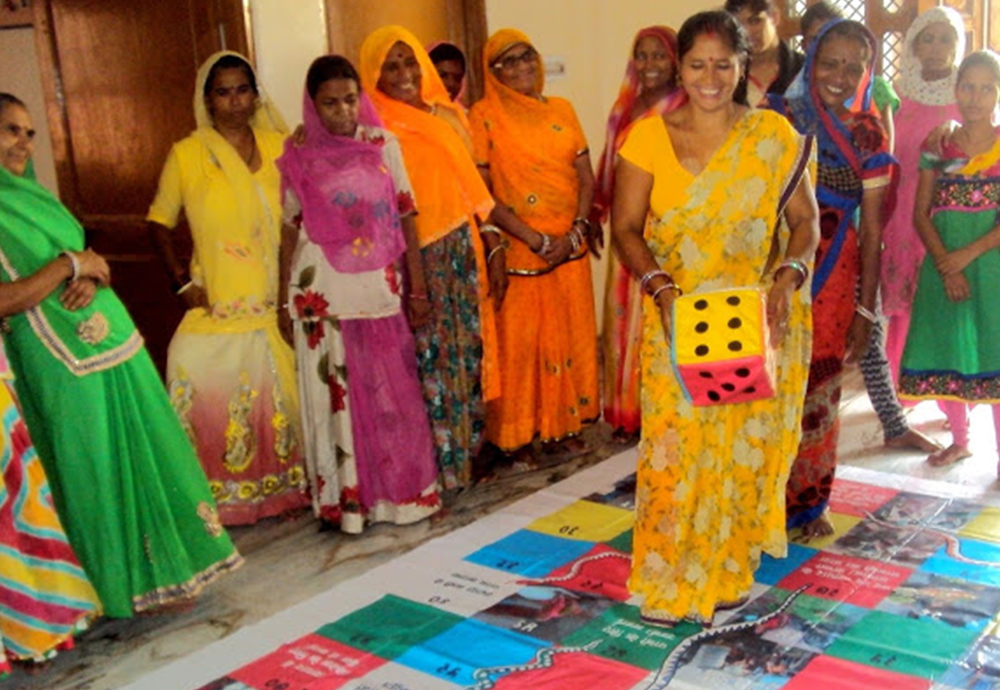Building Climate Resilience and Energy Efficient Livelihoods
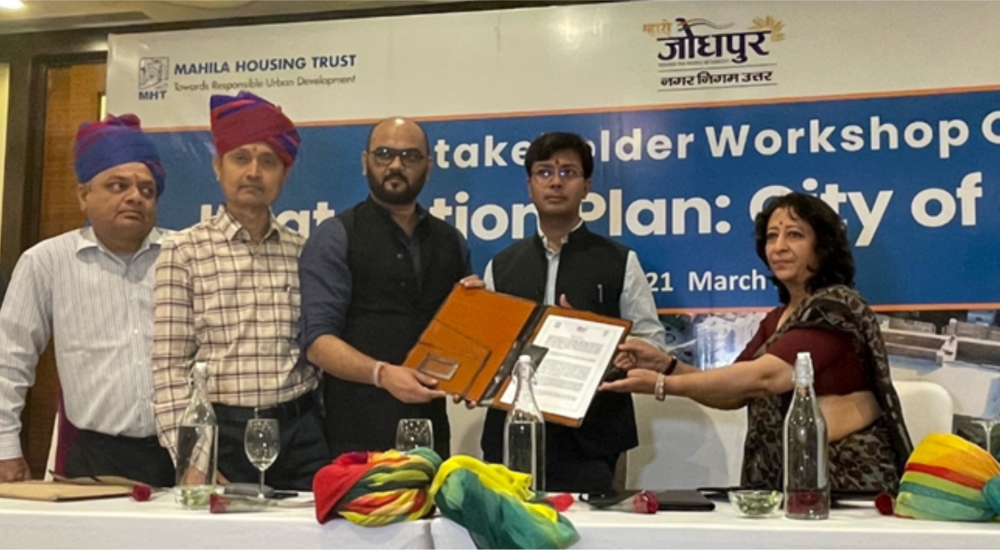
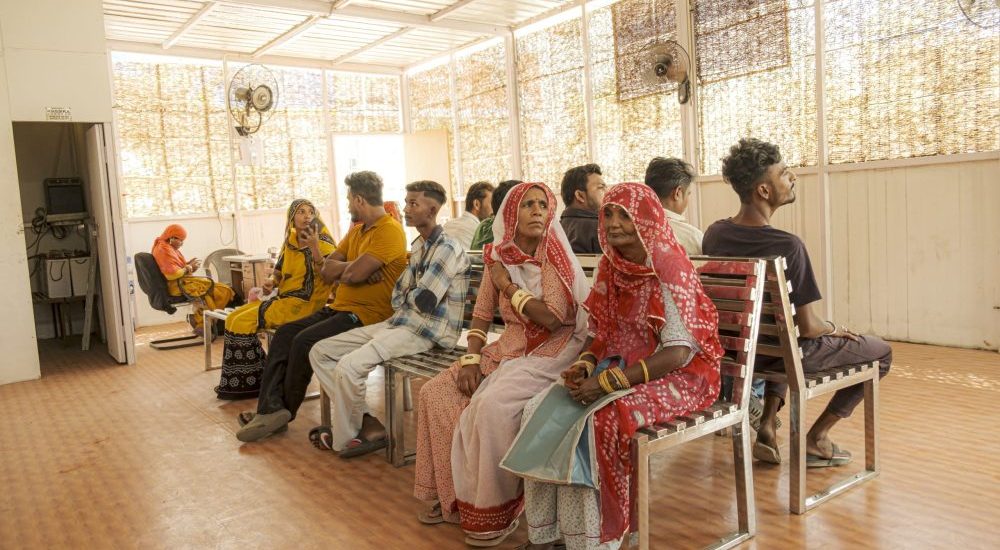
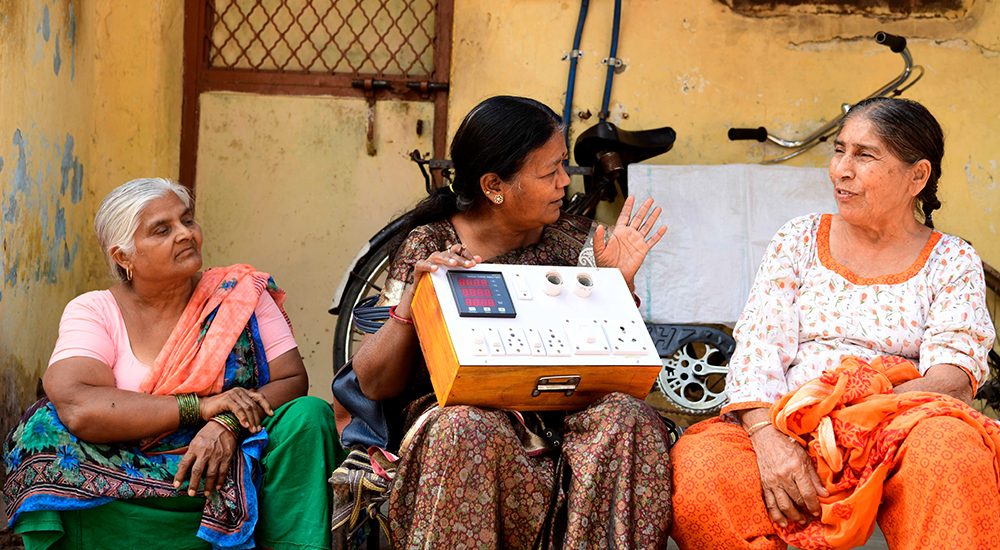
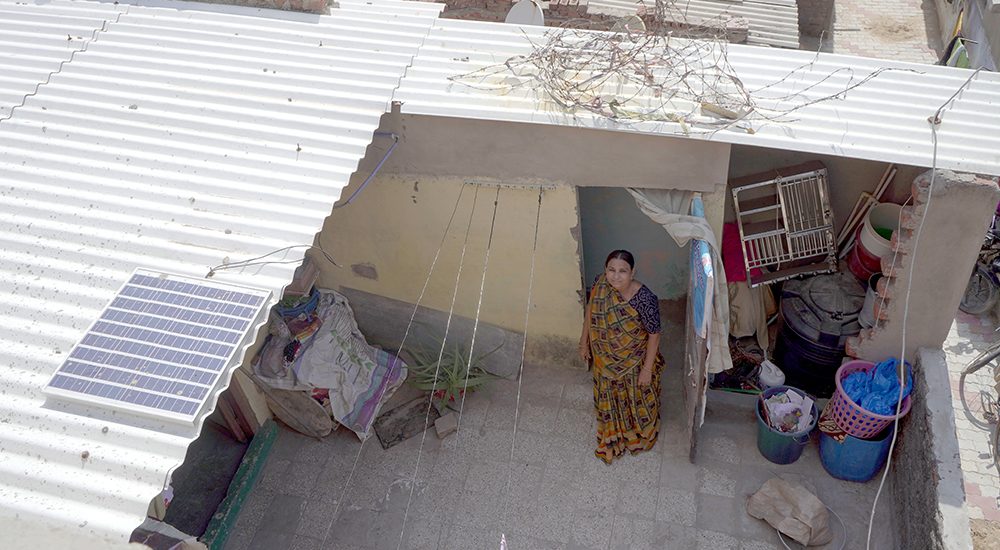
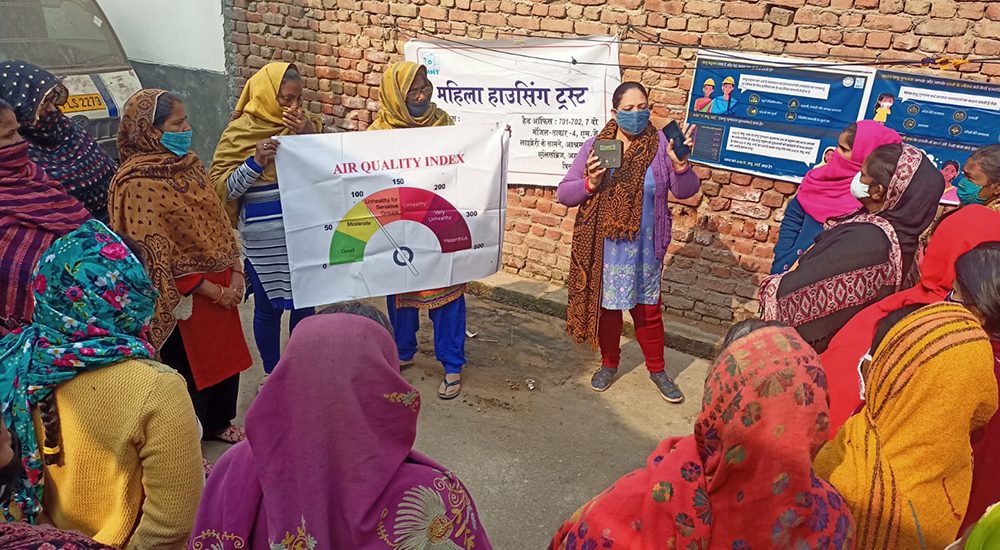
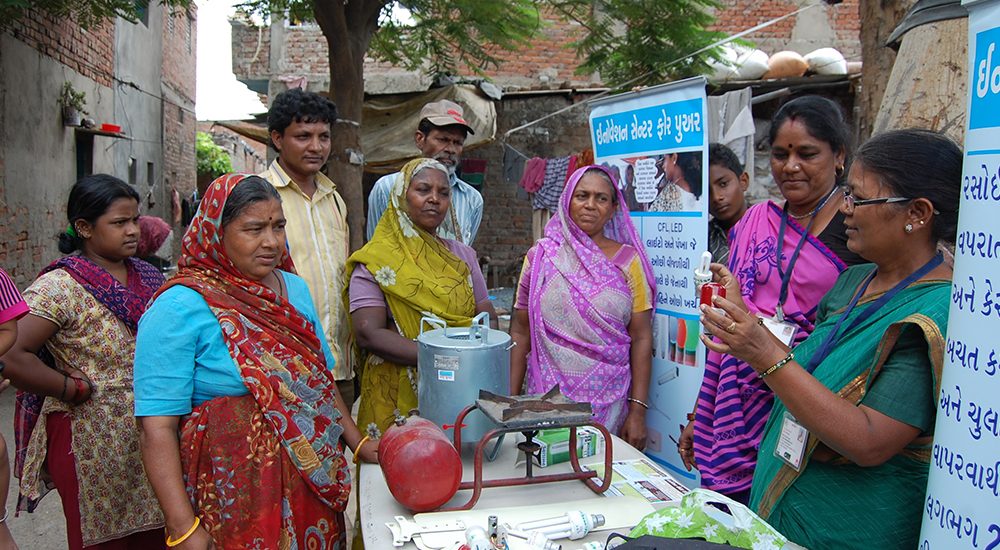
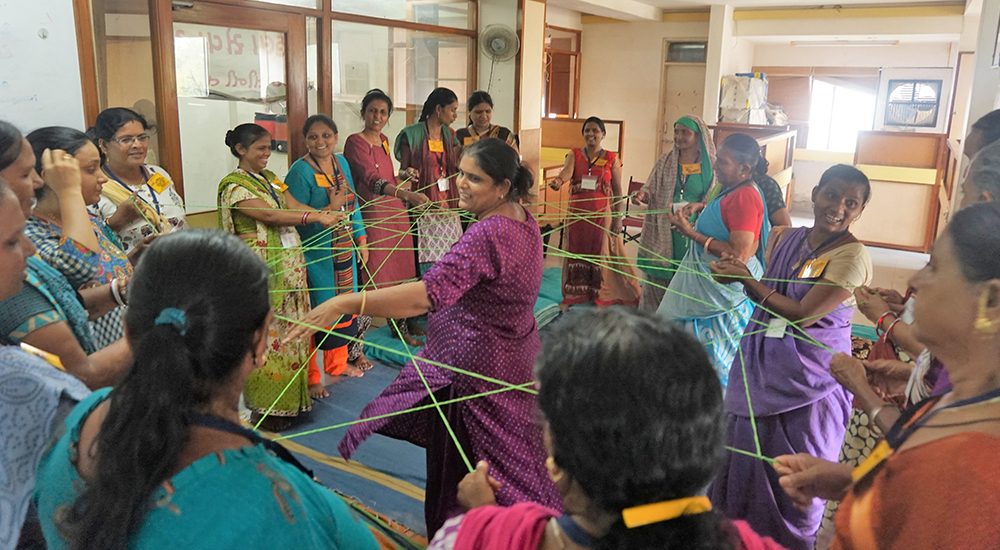
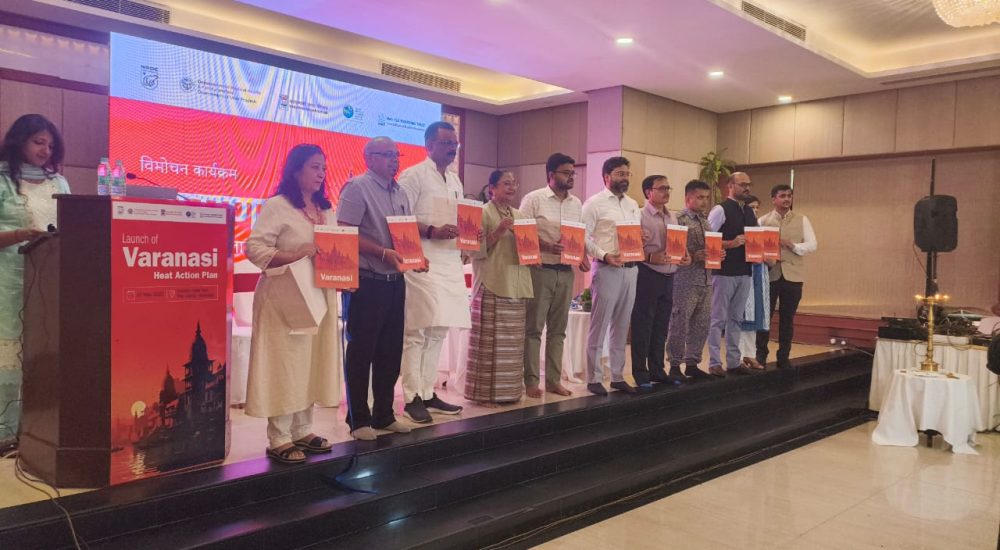
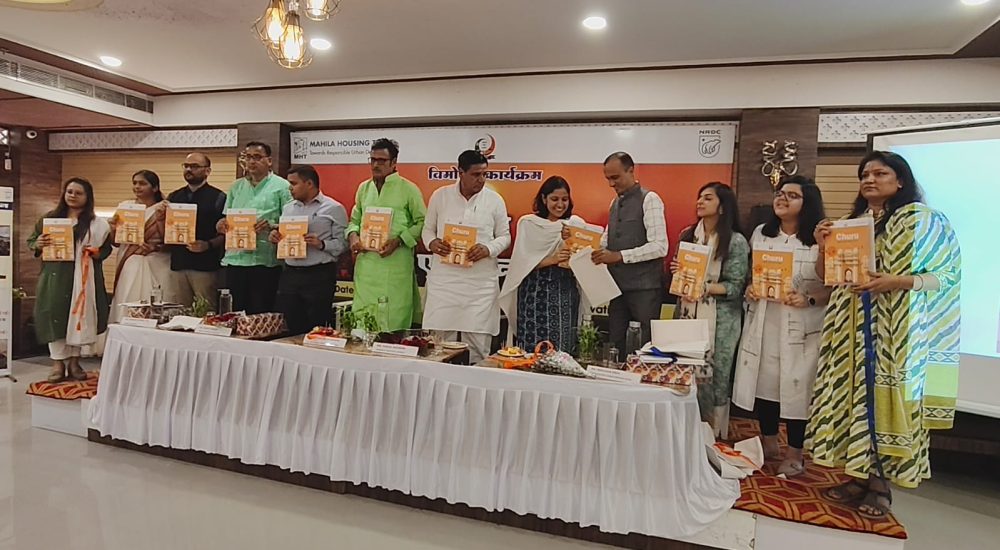
MHT has championed a community based resilience model that is women-led, integrated, evidence based, and focuses on innovative communication strategies to promote a culture of resilience. Our efforts are particularly focused on four climate stressors (heat extremes, flooding, deteriorating water quality, and diseases) that are slow to onset, attract less attention, but frequently impact poor people, particularly women, the most. Facilitating clean energy transitions is a parallel aspect of MHT’s climate resilience strategy.
The first-of-its-kind ‘Net Zero Cooling Station’ for the informal sector, providing a safe, cool space for urban poor and marginalized communities as part of the Jodhpur Heat Action Plan.
Jodhpur, renowned for its historical heritage and vibrant culture, faces a significant challenge with rising temperatures exacerbated by climate change. In June 2022, the Community Action Groups (CAGs), trained by MHT to address climate change issues, demanded a Heat Action Plan for the city, emphasizing the needs of its most vulnerable populations. This marked the first time that the vulnerable community actively called for such an initiative.
In March 2023, a multi-stakeholder workshop was conducted in Jodhpur to engage various government department stakeholders in proposing a Heat Action Plan. This workshop aimed to enhance heat preparedness by engaging experts in climate, health, and public policy, along with local government, academic institutions, and community members. Participants discussed strategic and effective measures to reduce vulnerability to extreme heat.
In April 2023, Jodhpur Nagar Nigam North (JNNN), MHT, and the Natural Resources Defense Council (NRDC) launched a first-of-its-kind Jodhpur Heat Action Plan, focusing on passive cooling features.
Empowering communities to conduct climate risk assessments and implement locally relevant solutions.
MHT has devised a community based vulnerability assessment and resilience planning model particularly aimed at building the capacities of women from low income communities to become climate champions. We encourage families to make climate-resilient investments and adopt solutions that are affordable and applicable. Examples of solutions include water scarcity and quality interventions, cool-roofs, and alarms and alerts for pollution and flooding.
Enabling legal access to electricity and renewable energy
We forge partnerships with electricity companies to simplify access to legal electric connections in informal settlements and support the clean energy transition through grassroots-level actions. Through our network of women energy auditors, we disseminate green energy and building products such as LED lights, smokeless cooking stoves, solar lighting, and cooling systems.
Implementing cooling solutions for thermal comfort in cities
We work with communities and cities on building resilience against extreme heat stress, which has emerged as a key concern in urban areas in India. MHT’s inputs to Ahmedabad’s Heat Action Plan have resulted in a citywide coolroof program targeting the most vulnerable settlements with poor quality homes that trap heat and become dangerously hot. We also work on urban heat island reduction through citywide greening strategies and mobilizing action on air pollution.
Extending Climate Risk Insurance to the Poor
Climate insurance is a critical tool to help poor communities overcome the burden of loss and damage. MHT is working towards building an index-based risk transfer solution for excessive urban heat that is both sustainable and scalable. The programme aims to provide a parametric insurance product to cooperative clients that will finance women entrepreneurs from poor backgrounds to build resilient communities.

